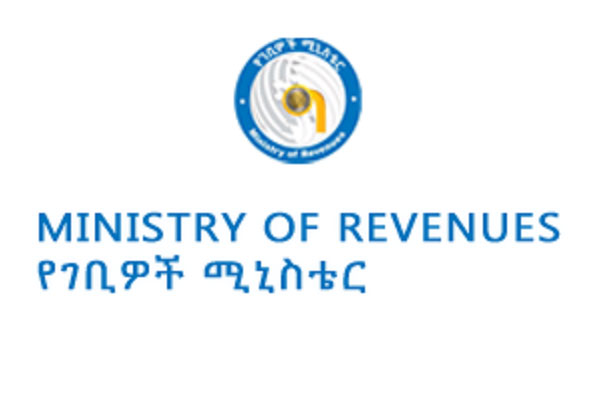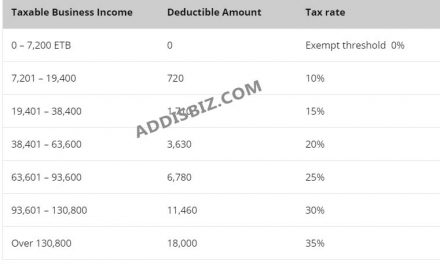Ethiopia’s government plans to increase its annual tax revenues by more than ten folds to 3.4 trillion birr by 2030, Planning and Development Commission announced.
The country’s tax revenues, which stood at 312 billion birr in the last fiscal year, had showed a six-fold increase over the last decade, lower than what the federal government anticipates for the next decade.
Even though such growth had been witnessed, in value, the change in tax revenues has been low compared to the 9.9 percent economic growth registered in the same period.
This has led to a fall in tax revenues to GDP ratio, reaching 9.2 percent in the last fiscal year; two times lower than that of the sub-Saharan average. Thus, the commission has targeted to increase this by 18 percent by 2030 – using different policy tools, including widening the tax base and legalizing the informal sector.
“Due to the absence of a dynamic tax collection system, our tax to GDP ratio has been very low, necessitating for the introduction of different tax reforms in line with the home grown economic reform agenda,” said Nemera Gebeyehu (PhD), Deputy Planning and Development Commissioner, during the two day workshop on the new ten-year development strategic pillars and sector areas of focus, held at Sheraton Addis this week.
Lack of commitment amongst government officials and poor enforcement of laws and regulations have contributed to the unmatched growth of tax revenues and GDP in the country, Nemera said, while hinting at the government’s readiness to take corrective measures.
In addition, the Commission disclosed that sectors that are under-taxed under the current tax system will be under scrutiny.
“Despite employing the lion’s share of the country’s workforce, the agriculture sector, for instance, does not play a significant role in the tax collection scheme. Farmers have been only paying taxes for the plot of land they cultivate,” said Fitsum Assefa, Planning and Development Commissioner.
“As opposed to the traditional trend practiced for decades, we want to transform the agricultural sector and make it a major source of tax revenues. Farmers who are willing to establish enterprises and be part of the formal sector will be incentivized, which will help us collect more taxes,” she added.
Launching an awareness creation program is part of the plan to boost the tax revenues of the country.
“The tax system is considered as a punitive measure among the public, a situation which requires the application of more awareness creation mechanisms,” Fitsum told The Reporter.
In addition, the government also plans to automate the tax system and bring the illegal mode of trading a.k.a contraband into the formal system, in a bid to raise tax revenues to match the expected economic growth.
EthiopianReporter






